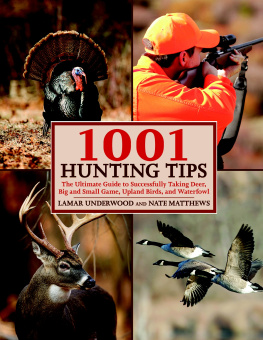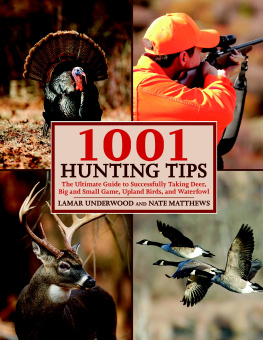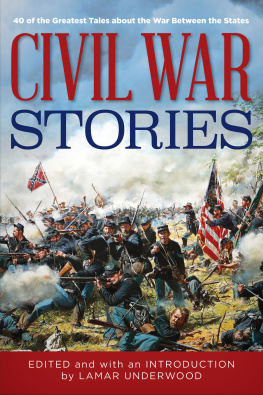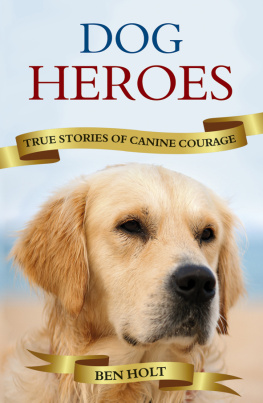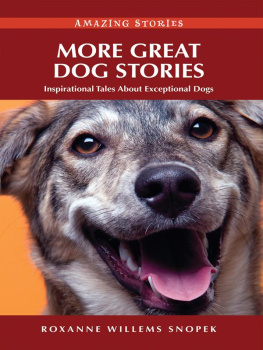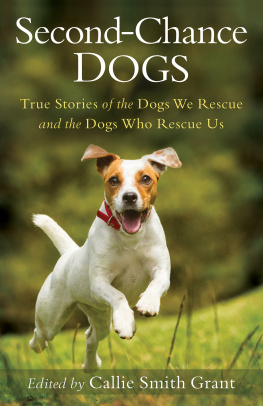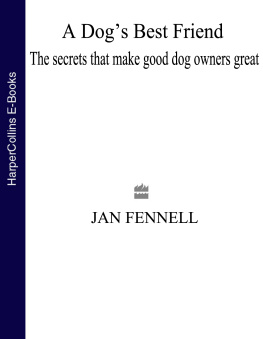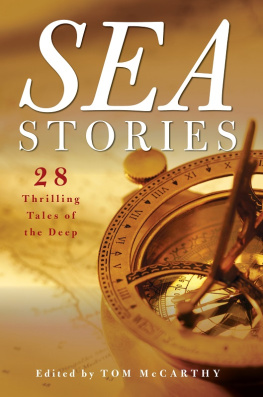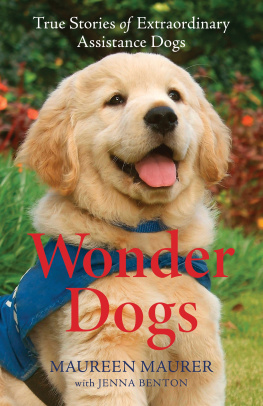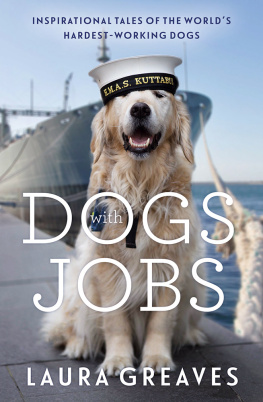The Power of the Dog, by Rudyard Kipling, from Actions and Reactions, Doubleday, Page & Company, 1909.
LadA Dog, by Albert Payson Terhune, from book of the same title, E. P. & Company, 1919.
The Road to Tinkhamtown, by Corey Ford, from Field & Stream magazine, November 1970. Reprinted by permission of Dartmouth College Library.
The Call of the Wild, by Jack London, from book of the same title, Macmillan Company, 1903.
A Dark-Brown Dog, by Stephen Crane, from Men, Women, and Boats, 1920.
Bingo, by Ernest Thompson Seton, from Wild Animals I Have Known, Charles Scribners Sons, 1900.
A Dogs Tale, by Mark Twain, from Harpers Magazine, December 1903.
Beautiful Joe, by Marshall Saunders, from book of the same title, 1903.
Stickeen, by John Muir, Atlantic Monthly Press, Inc., 1918.
Homebodies, by Tom Hennessey, from Feathers n Fins, Amwell Press, 1989. Reprinted by permission of Nancy Hennessey.
A Yellow Dog, by Bret Harte, from Barkers Luck and Other Stories, Houghton Mifflin, 1896.
My Most Memorable Dog, by Archibald Rutledge, from Bird Dog Days, Wingshooting Ways, edited by Jim Casada, University of South Carolina Press, 2016. Reprinted by permission of Jim Casada.
That Spot, by Jack London, from Lost Face, Mills & Boon Ltd., London, 1916.
The Sunnybank Collies, by Albert Payson Terhune, from Buff: A Collie and Other Dog Stories, Grosset & Dunlap, 1921.
The Lead Dog, by William Francis Butler, from The Wild North Land, Macmillan Co. of Canada, 1910.
Uncle Dicks Rolf, by Georgiana Marion Craik, from The Junior Classics, Volume 8, edited by William Patten, P. F. Collier and Son, 1912.
Ulysses and the Dogman, by O. Henry, from Sixes and Sevens, Doubleday, Page & Company, 1914.
Brown Wolf, by Jack London, from Brown Wolf and Other Jack London Stories, Macmillan Company, 1920.
Tito: The Story of the Coyote That Learned How, by Ernest Thompson Seton, from Wild Animals I Have Known, Charles Scribners Sons, 1900.
Scrap, by Lucia Chamberlain, from The Junior Classics, Volume 8, edited by William Patten, P. F. Collier and Son, 1912.
Bruce, by Albert Payson Terhune, from book of the same title, E. P. Dutton & Company, 1920.
How the Dog Tax Was Paid, by Sarah Knowles Bolton, from A Country Idyll and Other Stories, Thomas Crowell & Co., 1898.
Dogs and Men, by Henry C. Merwin, from Atlantic Classics, Second Series, Atlantic Monthly Press, 1918.
Show Time, by Walter A. Dyer, from The Dogs of Boytown, Henry Holt & Co., 1918.
Douglas, by Sarah Knowles Bolton, from A Country Idyll and Other Stories, Thomas Crowell & Co., New York, 1898.
The Amazing Letter-Writing Dog, by Christopher Morley, from The Powder of Sympathy, Doubleday, Page & Company, 1923.
Point! by Peter B. Kyne, from My Story I Liked Best, edited by Ray Long, International Magazine Co., 1925.
The Hound of the Baskervilles, by Arthur Conan Doyle, from book of the same title, originally serialized in Strand Magazine, August 1901April 1902.
My Doggie and I, by R. M. Ballantyne, from book of the same title, 1881.
by Rudyard Kipling
The novels, short stories, and poems of Rudyard Kipling fill many, many volumes of literature. Sometimes lost in the mix is this powerful statement attesting to his love of dogs.
There is sorrow enough in the natural way
From men and women to fill our day;
But when we are certain of sorrow in store,
Why do we always arrange for more?
Brothers and sisters, I bid you beware
Of giving your heart to a dog to tear.
Buy a pup and your money will buy
Love unflinching that cannot lie
Perfect passion and worship fed
By a kick in the ribs or a pat on the head.
Nevertheless it is hardly fair
To risk your heart for a dog to tear.
When the fourteen years which Nature permits
Are closing in asthma, or tumour, or fits,
And the vets unspoken prescription runs
To lethal chambers or loaded guns,
Then you will findits your own affair
But youve given your heart to a dog to tear.
When the body that lived at your single will,
When the whimper of welcome is stilled (how still!),
When the spirit that answered your every mood
Is gonewherever it goesfor good,
You will discover how much you care,
And will give your heart to a dog to tear!
Weve sorrow enough in the natural way,
When it comes to burying Christian clay.
Our loves are not given, but only lent,
At compound interest of cent per cent.
Though it is not always the case, I believe,
That the longer weve kept em, the more do we grieve:
For, when debts are payable, right or wrong,
A short-time loan is as bad as a long
So why in Heaven (before we are there!)
Should we give our hearts to a dog to tear?
by Albert Payson Terhune
Albert Payson Terhune was an American author, dog breeder, and journalist. He was popular for his novels relating the adventures of his beloved collies and as a breeder of collies at his Sunnybank Kennels. His novel Lad: A Dog is a wonderful statement of his collie love. This excerpt begins where that book ends, in the last chapter.
F OR MORE YEARS THAN HE COULD REMEMBER , L AD HAD BEEN KING . H E had ruled at The Place, from boundary-fence to boundary-fence, from highway to Lake. He had had, as subjects, many a thoroughbred collie; and many a lesser animal and bird among the Little Folk of The Place. His rule of them all had been lofty and beneficent.
The other dogs at The Place recognized Lads rulershiprecognized it without demur. It would no more have occurred to any of them, for example, to pass in or out through a doorway ahead of Lad than it would occur to a courtier to shoulder his way into the throne-room ahead of his sovereign. Nor would one of them intrude on the cave under the living-room piano which for more than a decade had been Lads favorite resting-place.
Great was Lad. And now he was oldvery old.
He was thirteenwhich is equivalent to the human age of seventy. His long, clean lines had become blurred with flesh. He was undeniably stout. When he ran fast, he rolled slightly in his stride. Nor could he run as rapidly or as long as of yore. While he was not wheezy or asthmatic, yet a brisk five-mile walk would make him strangely anxious for an hours rest.
He would not confess, even to himself, that age was beginning to hamper him so cruelly. And he sought to do all the things he had once doneif the Mistress or the Master were looking. But when he was alone, or with the other dogs, he spared himself every needless step. And he slept a great deal.
Withal, Lads was a hale old age. His spirit and his almost uncanny intelligence had not faltered. Save for the silvered muzzlefirst outward sign of age in a doghis face and head were as classically young as ever. So were the absurdly small fore-pawshis one gross vanityon which he spent hours of care each day, to keep them clean and snowy.
He would still dash out of the house as of oldwith the wild trumpeting bark which he reserved as greeting to his two deities alonewhen the Mistress or the Master returned home after an absence. He would still frisk excitedly around either of them at hint of a romp. But the exertion was an exertion. And despite Lads valiant efforts at youthfulness, everyone could see it was.
No longer did he lead the other dogs in their headlong rushes through the forest in quest of rabbits. Since he could not now keep the pace, he let the others go on these breath-and-strength-taking excursions without him; and he contented himself with an occasional lone and stately walk through the woods where once he had led the runstrolling along in leisurely fashion, with the benign dignity of some plump and ruddy old squire inspecting his estate.


